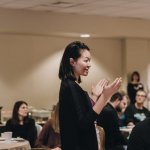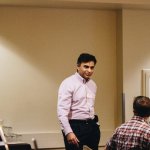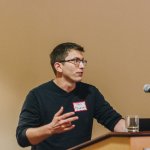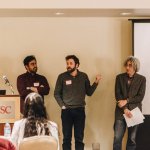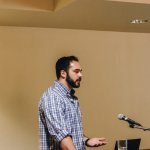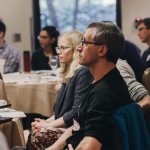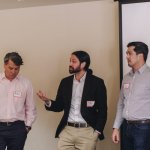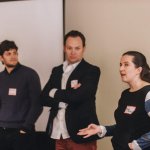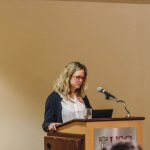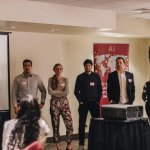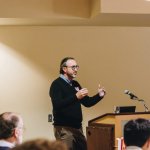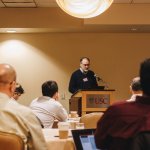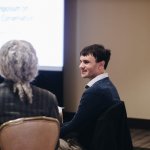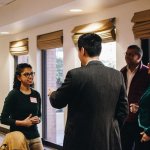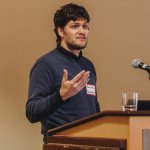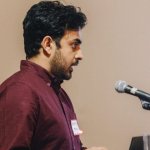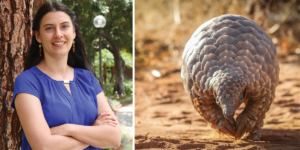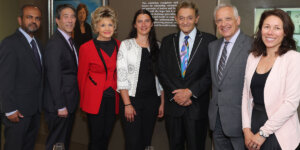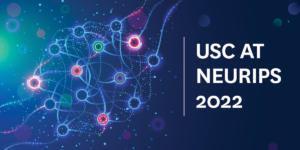
The Symposium on AI for Conservation included speakers and guests from universities, non-profit organizations and industry. Photo/Kayly Luong.
On Feb. 8, more than 50 guests from academia, non-profit organizations and industry united at USC to tackle one of the toughest issues facing our planet: conservation. According to the 2018 World Wildlife Fund Living Planet Report, between 1970 and 2014, populations of vertebrates declined by 60 percent on average. The number one cause of that decline? Habitat loss and degradation, followed by overexploitation.
To challenge a crisis of this magnitude requires the power of many minds, which is why Bistra Dilkina, USC WiSE Gabilan Assistant Professor in Computer Science, was spurred to organize The Symposium on AI for Conservation. Sponsored by the Microsoft AI for Earth program, “the idea behind the event was to bring people from the academic world together with tech companies and NGOs that work in the conservation space to increase momentum as a synergistic group,” said Dilkina.
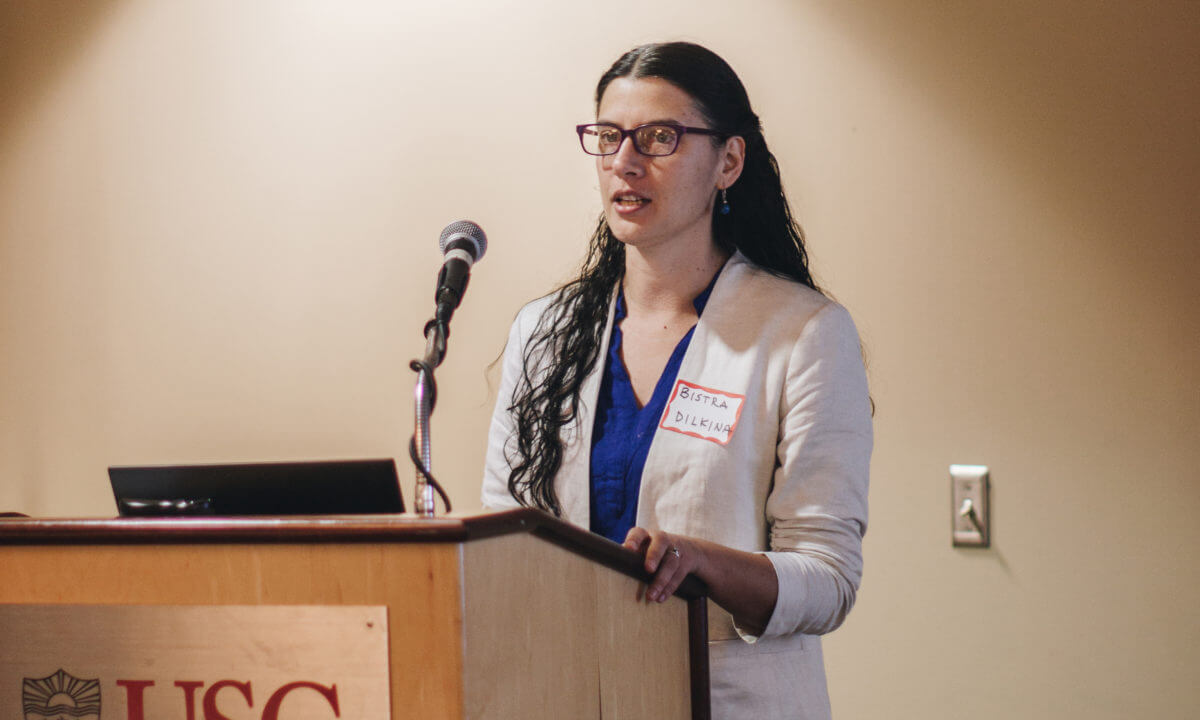
“Rangers are at the forefront of looking for traps. But these are huge areas with only small number of rangers.” — Bistra Dilkina, WiSE Gabilan assistant professor of computer science, USC, on using artificial intelligence to predict where poachers are likely to strike next. Photo/Kayly Luong.
An associate director at USC’s Center for Artificial Intelligence in Society (CAIS), Dilkina is dedicated to developing projects that cross boundaries between disciplines to tackle real-world problems in sustainability. As such, community building was at the heart of the day-long event, which included invited talks outlining some key AI contributions in this space, as well as short talks from conservation organizations exploring some of the major challenges in the field.
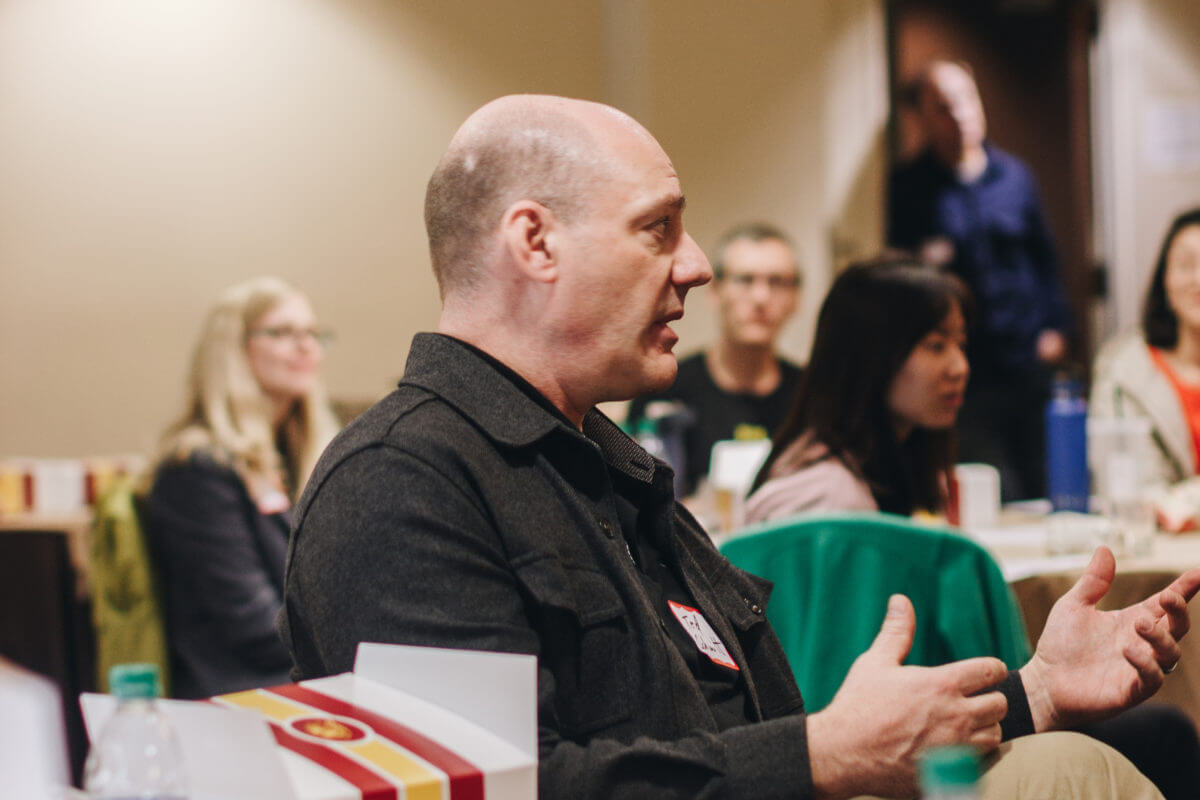
Attendees had the opportunity to brainstorm opportunities for AI to inform data collection, predictive modeling, and resource allocation for environmental domains and conservation.
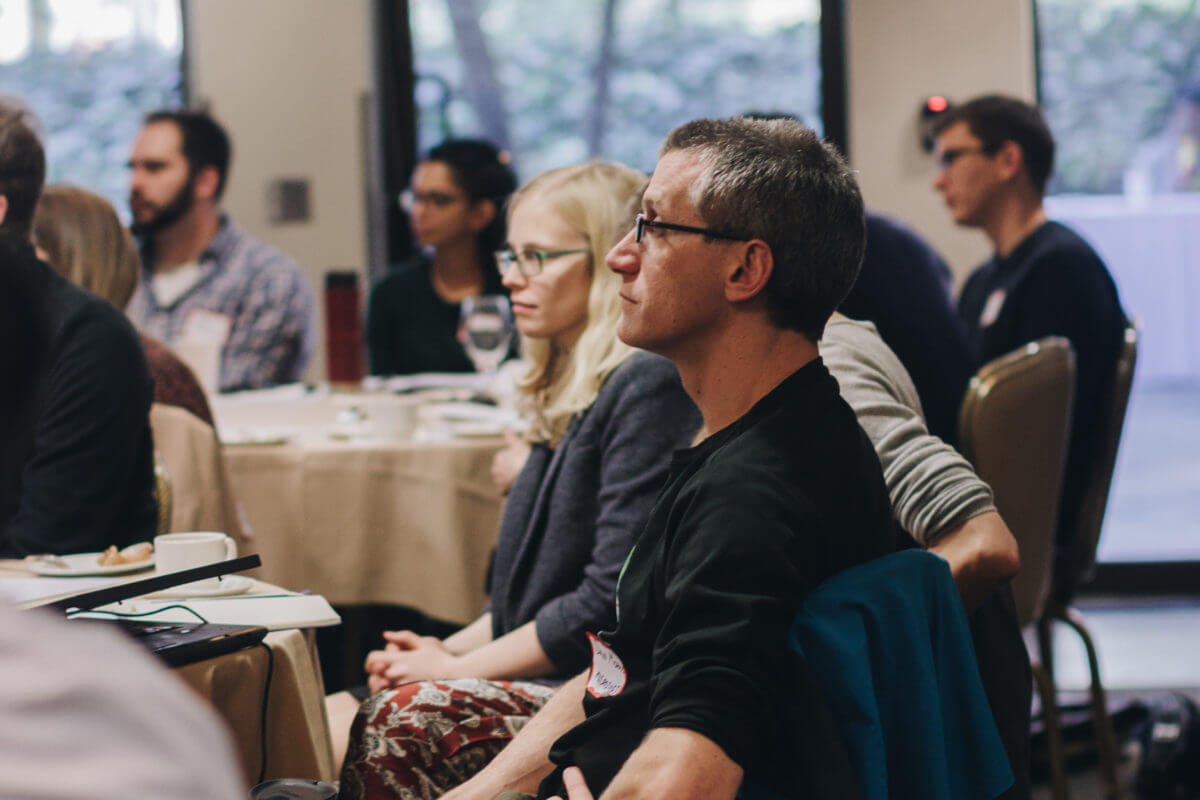
Guests in attendance came from diverse organizations and institutions, including Carnegie Mellon University, Cornell University, Google Earth, Intel, Microsoft, the Leonardo DiCaprio Foundation, San Diego Zoo, WildBook and the World Wildlife Fund.
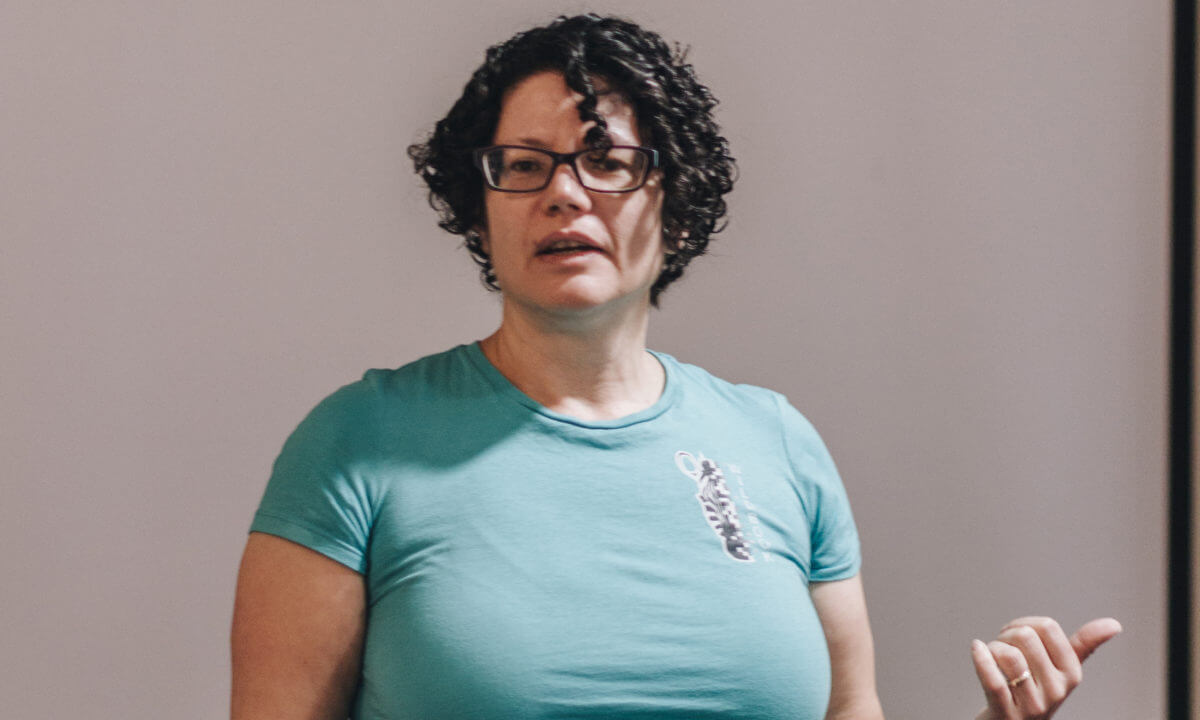
Tanya Berger-Wolf, professor of computer science, University of Illinois at Chicago, on “Crowdsourcing Conservation with Computer Vision.” Photo/Kayly Luong.

Tom Dietrich, Distinguished Professor (Emeritus) and Director of Intelligent Systems, Oregon State University, on “Automated Quality Control for a Weather Sensor Network.” Photo/Kayly Luong.
Keynote speakers included conservation luminaries Tanya Berger-Wolf, a professor of computer science at the University of Illinois at Chicago, Tom Dietterich, a distinguished professor (Emeritus) at Oregon State University, and Vipin Kumar, a Regents professor at the University of Minnesota, as well as short talks from conservation organizations.

Additional lightning talks and moderated in-depth discussion sessions rounded out the day.
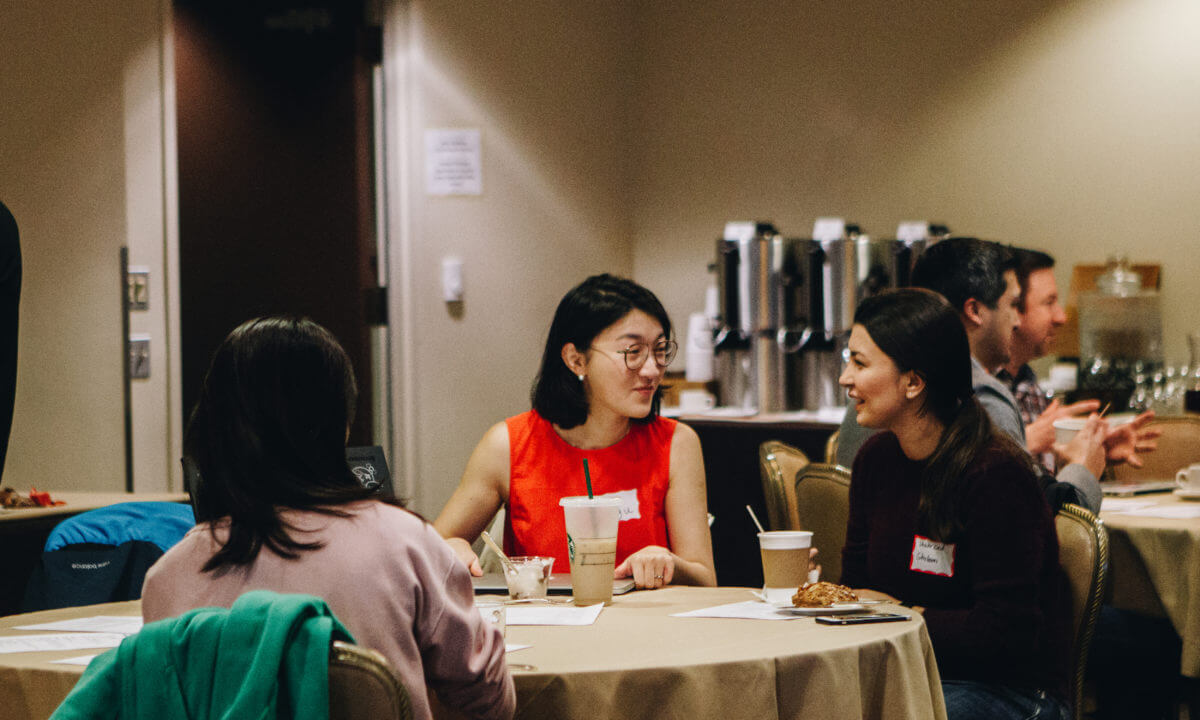
“I think many people might be working on a similar topic but they are not aware of each other’s work… Gathering like this can open up more doors for future collaborations.”— Shahrzad Gholami, USC computer science PhD candidate.
Event attendee Shahrzad Gholami, a USC PhD candidate in computer science, said, “I think many people might be working on a similar topic but they are not aware of each other’s work. Having symposiums like this can bring everyone in the same room, so people can hear about each other’s ideas and approaches and maybe join forces to solve the problem in a more efficient way and have more impact. Gathering like this can open up more doors for future collaborations.”
View photo highlights below and the full album on the USC Viterbi Flickr.
View the full photo album on the USC Viterbi Flickr page.
Published on February 21st, 2019
Last updated on February 25th, 2019




